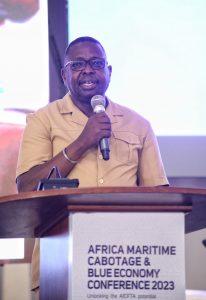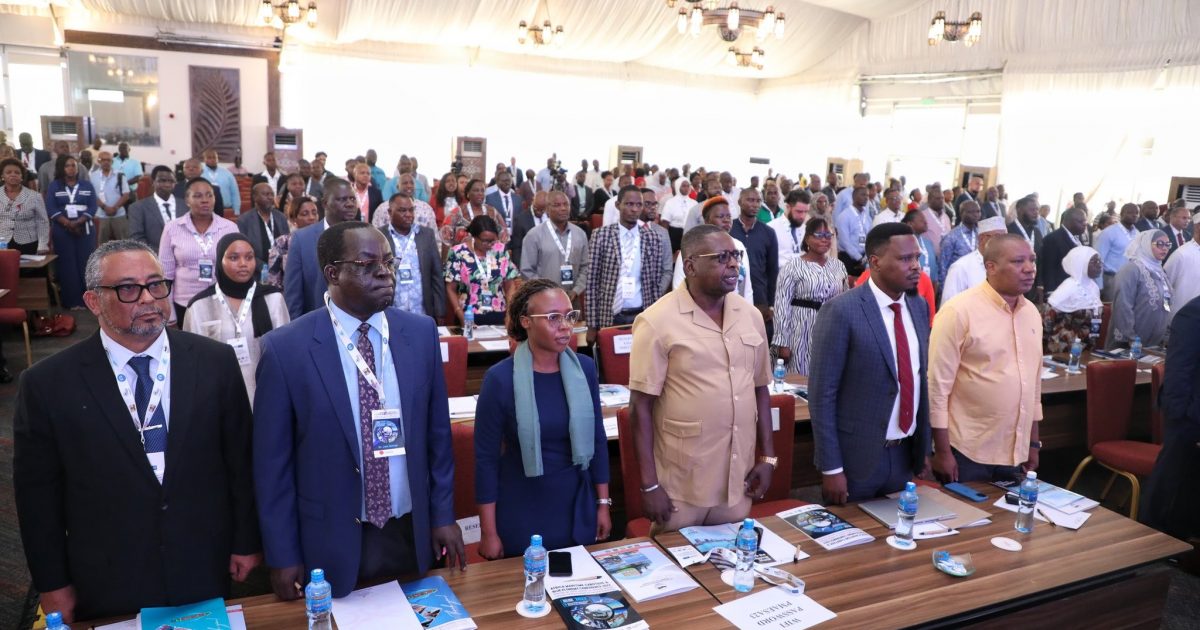Shipping and Maritime Affairs PS Geoffrey Kaituko has called for regional collaboration to establish policies that will give African countries dealing with maritime trade a competitive advantage and be more attractive to local investors.
Speaking during the African Maritime Cabotage and Blue Economy conference in Mombasa, Kaituko said there was a need for leaders, visionaries, industry experts and innovators to be united in the shared commitment to harnessing the boundless potential of the oceans.
The PS noted that countries in the maritime trade should collectively chat on a course toward a future of sustainable maritime transport development in the continent.
“In harnessing the potential of cabotage, we shall be able to nurture our shipping sectors, leading to the development of a skilled maritime workforce, robust shipbuilding industries, and thriving ancillary services,” he said.
Kaituko added that the collaboration would also contribute to national security by enhancing the control over coastal waters and fostering self-reliance.
“For far too long, we have stood on the sidelines, watching the world engage in maritime activities, perhaps believing that it was beyond our grasp and too intricate to navigate.”
This perception has unfortunately led to insufficient investment in the sector creating an opening for foreign entities to seize control of local shipping in our region. It is high time we change this narrative and realize that the potential for us to not only participate but excel in maritime endeavors is well within our reach,” he added.
The PS said the thriving transshipment of cargo between the ports in different countries involved in the maritime trade is a testament to the potential for the development of local shipping sectors.

He said the discussions will focus on ways of reserving local shipping opportunities for regional players.
The PS said the issue at hand is the limitations of local Ship’s Registries, a consequence of unfavorable policies and regulatory frameworks.
He added that to truly harness the potential of the maritime sector, the region must undergo a paradigm shift and implement measures to enhance the appeal of the Ship’s Registers.
“These include favorable taxation policies, a streamlined ship registration process, competitive registration fees, and unfettered access to essential services for ship repairs, maintenance, and surveying. Additionally, facilitating access to ship financing and insurance is paramount,” said Kaituko.
At the same time, he underscored the need for nations to safeguard the fragile ecosystem of the oceans, adding that it is important to explore means of developing sustainable shipping practices that minimize environmental footprint.
The PS further urged women and youth to participate in every facet of the Blue Economy, noting that their inclusion not only enriches the collective expertise, but also empowers future generations to steer Africa towards even greater heights.
By Chari Suche




